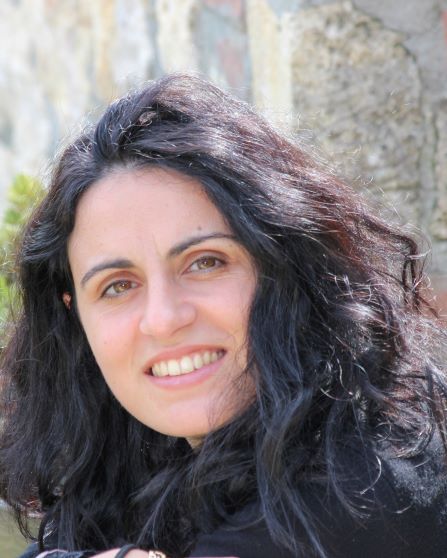Studying at the University of Verona
Here you can find information on the organisational aspects of the Programme, lecture timetables, learning activities and useful contact details for your time at the University, from enrolment to graduation.
Academic calendar
The academic calendar shows the deadlines and scheduled events that are relevant to students, teaching and technical-administrative staff of the University. Public holidays and University closures are also indicated. The academic year normally begins on 1 October each year and ends on 30 September of the following year.
Course calendar
The Academic Calendar sets out the degree programme lecture and exam timetables, as well as the relevant university closure dates..
| Period | From | To |
|---|---|---|
| primo semestre (lauree magistrali) | Oct 4, 2021 | Dec 17, 2021 |
| secondo semestre (lauree magistrali) | Feb 21, 2022 | May 13, 2022 |
| Session | From | To |
|---|---|---|
| sessione invernale | Jan 10, 2022 | Feb 18, 2022 |
| sessione estiva | May 23, 2022 | Jul 8, 2022 |
| sessione autunnale | Aug 22, 2022 | Sep 23, 2022 |
| Session | From | To |
|---|---|---|
| sessione autunnale (validità a.a. 2020/2021) | Dec 6, 2021 | Dec 10, 2021 |
| sessione invernale (validità a.a. 2020/2021) | Apr 6, 2022 | Apr 8, 2022 |
| sessione estiva (validità a.a. 2021/2022) | Sep 5, 2022 | Sep 6, 2022 |
Exam calendar
Exam dates and rounds are managed by the relevant Economics Teaching and Student Services Unit.
To view all the exam sessions available, please use the Exam dashboard on ESSE3.
If you forgot your login details or have problems logging in, please contact the relevant IT HelpDesk, or check the login details recovery web page.
Should you have any doubts or questions, please check the Enrollment FAQs
Academic staff
 eleonora.branca@univr.it
eleonora.branca@univr.it
 mario.furno@univr.it
mario.furno@univr.it
 cecilia.mancini@univr.it
cecilia.mancini@univr.it

Peluso Eugenio
 eugenio.peluso@univr.it
eugenio.peluso@univr.it
 045 8028104
045 8028104
 francesca.rossignoli@univr.it
francesca.rossignoli@univr.it
 0444 393941 (Ufficio Vicenza) 0458028261 (Ufficio Verona)
0444 393941 (Ufficio Vicenza) 0458028261 (Ufficio Verona)
Study Plan
The Study Plan includes all modules, teaching and learning activities that each student will need to undertake during their time at the University.
Please select your Study Plan based on your enrollment year.
1° Year
| Modules | Credits | TAF | SSD |
|---|
2° Year activated in the A.Y. 2022/2023
| Modules | Credits | TAF | SSD |
|---|
| Modules | Credits | TAF | SSD |
|---|
| Modules | Credits | TAF | SSD |
|---|
| Modules | Credits | TAF | SSD |
|---|
Legend | Type of training activity (TTA)
TAF (Type of Educational Activity) All courses and activities are classified into different types of educational activities, indicated by a letter.
Reporting and cost accounting (2022/2023)
Teaching code
4S003754
Teacher
Coordinator
Credits
6
Language
English
Scientific Disciplinary Sector (SSD)
SECS-P/07 - BUSINESS ADMINISTRATION AND ACCOUNTING STUDIES
Period
Secondo semestre (lauree magistrali) dal Feb 20, 2023 al May 19, 2023.
Learning objectives
The aim of the course is to develop the student ability in undestanding and designing the cost accounting and the business reporting systems.
A cost accounting system is concerned with accumulating cost for inventory valuation to meet external financial accounting and internal monthly or quaterly profit measurement requirements.
A management accounting system accumulates, classifies, summarizes and reports information that will assist employees within an organization in their decision making, planning, control and performance measurement activities. A business reporting system summarise both internal and external information for the decision making process realised by top and middle management.
At the end of the course the student will be able:
- to know the main instruments for cost accounting and business reporting;
- to design the cost accounting system and the business reporting system for a SME;
- to determine and analyse the main variances between budget and actual costs;
- to prepare a few business reports on costs or responsibility centers.
The course is taught in English.
Prerequisites and basic notions
The course requires knowledge of business processes and prarticularly knowledge of financial accounting processes
Program
The course is divided into four parts (both for attending and non attending students):
PART 1: INTRODUCTION TO MANAGEMENT AND COST ACCOUNTING
1. Introduction to management accounting
2. An introduction to cost terms and concepts
PART 2: COST ACCUMULATION FOR INVENTORY VALUATION AND PROFIT MEASUREMENT
3. Cost assignment
4. Accounting entries for a job costing system
5. Process costing
6. Joint and by-product costing
PART 3: INFORMATION FOR DECISION-MAKING
8. Cost-volume-profit analysis
9. Measuring relevant costs and revenues for decision-making
10. Pricing decision and profitability analysis
11. Activity-based costing
PART 4: INFORMATION FOR PLANNING, CONTROL AND PERFORMANCE MEASUREMENT
15. The budgeting process
16. Management control systems
17. Standard costing and variance analysis
PART 6: INFORMATION FOR PLANNING, CONTROL AND PERFORMANCE MEASUREMENT
24 Cost estimation and cost behaviour
Bibliography
Didactic methods
TEACHING ACTIVITY: front lessons. During the course a few casestudy will be analysed. Students will found those materials accessing to MYUNIVR platform. Students must prepare (compulsory for all students) a project work under the supervision of the teacher. Instructions on how to do the PW (also for non attending students) are given in MYUNIVR platform. Chapters of the text book to study (Drury 10th ed) : 1, 2, 3, 4, 5, 6, 8, 9, 10, 11, 12, 15, 16, 17, 24.
The teacher is available for QandA:
1. at the and of the lectures;
2. in a specific meeting with students (both in presence and via skype - please see institutional webpage).
Learning assessment procedures
The aim of the examination is to assess a) the student knowledge of the main topics of the course and b) the ability to solve some practical case-study taken from the textbook and from case studies.
Evaluation criteria
The examination has two parts: 1 project work to do individually or in groups (gives a max of 10 marks); 2 MOODLE exam (gives a max of 20 marks). The project work can be done in two differents ways, please see MOODLE course page. MOODLE exam includes 10 multiple choice questions (MCQ), 2 marks for each question and 2 open questions (OQ), 5 marks for each question. Each question (MCQ and OQ) has a specific score indicated at the top line. The final grade is the sum of the scores of every single question PW + (MCQ + OQ). The maximum score for this course is 30. The MOODLE exam lasts 50 minutes and is done using MOODLE platform. If available the exam is done in an IT lab room. Please be ready to use a LAPTOP with 1 hour of battery.
Criteria for the composition of the final grade
The final grade is the sum of the evaluation of project work (max 10 marks) and MOODLE exam (max 20 marks).
The student MAY ask for an additional oral examination to modify (max +/- 3 marks) the previous score.
Online registration is required at least 3 days before the examination date.
Exam language
English
Type D and Type F activities
| years | Modules | TAF | Teacher |
|---|---|---|---|
| 1° 2° | The fashion lab (1 ECTS) | D |
Caterina Fratea
(Coordinator)
|
| 1° 2° | The fashion lab (2 ECTS) | D |
Caterina Fratea
(Coordinator)
|
| 1° 2° | The fashion lab (3 ECTS) | D |
Caterina Fratea
(Coordinator)
|
| years | Modules | TAF | Teacher |
|---|---|---|---|
| 1° 2° | Job Club | D |
Paola Signori
(Coordinator)
|
| 1° 2° | Marketing plan | D |
Virginia Vannucci
(Coordinator)
|
| 1° 2° | Soft skills Coaching Days (Esu 4 job) - 2021/2022 | D |
Paola Signori
(Coordinator)
|
| years | Modules | TAF | Teacher |
|---|---|---|---|
| 1° 2° | Internationalization and Sustainability. Friends or Enemies? | D |
Angelo Zago
(Coordinator)
|
| 1° 2° | Internationalization and Sustainability. Friends or Enemies? | D |
Angelo Zago
(Coordinator)
|
| 1° 2° | Internationalization and Sustainability. Friends or Enemies? | D |
Angelo Zago
(Coordinator)
|
| 1° 2° | Data Analysis Laboratory with R (Vicenza) | D |
Marco Minozzo
(Coordinator)
|
| 1° 2° | Data Visualization Laboratory | D |
Marco Minozzo
(Coordinator)
|
| 1° 2° | Python Laboratory | D |
Marco Minozzo
(Coordinator)
|
| 1° 2° | Data Science Laboratory with SAP | D |
Marco Minozzo
(Coordinator)
|
| 1° 2° | Advanced Excel Laboratory (Vicenza) | D |
Marco Minozzo
(Coordinator)
|
| 1° 2° | Excel Laboratory (Vicenza) | D |
Marco Minozzo
(Coordinator)
|
| 1° 2° | Programming in Matlab | D |
Marco Minozzo
(Coordinator)
|
| 1° 2° | Programming in SAS | D |
Marco Minozzo
(Coordinator)
|
| 1° 2° | Samsung Innovation Camp | D |
Marco Minozzo
(Coordinator)
|
| years | Modules | TAF | Teacher |
|---|---|---|---|
| 1° 2° | An introduction to multivariate statistical analysis using R - 2021/2022 | D |
Francesca Rossi
(Coordinator)
|
| 1° 2° | Business & Predictive Analytics for International Firms (with Excel Applications) - 2021/2022 | D |
Angelo Zago
(Coordinator)
|
| 1° 2° | What paradigms beyond the pandemic? Individual vs. Society, Private vs. Public | D |
Federico Brunetti
(Coordinator)
|
| 1° 2° | English for business and economics | F |
Angelo Zago
|
| 1° 2° | Integrated Financial Planning | D |
Riccardo Stacchezzini
(Coordinator)
|
| years | Modules | TAF | Teacher |
|---|---|---|---|
| 1° 2° | The fashion lab (1 ECTS) | D |
Caterina Fratea
(Coordinator)
|
| 1° 2° | The fashion lab (2 ECTS) | D |
Caterina Fratea
(Coordinator)
|
| 1° 2° | The fashion lab (3 ECTS) | D |
Caterina Fratea
(Coordinator)
|
| years | Modules | TAF | Teacher |
|---|---|---|---|
| 1° 2° | La metodologia SEM applicata allo studio della relazione tra gestione del rischio e performance nelle PMI | D |
Cristina Florio
(Coordinator)
|
| 1° 2° | Laboratory on research methods for business | D |
Cristina Florio
(Coordinator)
|
| 1° 2° | Professional Communication for Economics A.A. 2021-22 | D |
Claudio Zoli
(Coordinator)
|
| years | Modules | TAF | Teacher |
|---|---|---|---|
| 1° 2° | How to Enter in a Foreign Market. Theory and Applications - 2021/2022 | D |
Angelo Zago
(Coordinator)
|
Career prospects
Module/Programme news
News for students
There you will find information, resources and services useful during your time at the University (Student’s exam record, your study plan on ESSE3, Distance Learning courses, university email account, office forms, administrative procedures, etc.). You can log into MyUnivr with your GIA login details: only in this way will you be able to receive notification of all the notices from your teachers and your secretariat via email and soon also via the Univr app.
Double degree
To contribute to the internationalization of the experience of students enrolled in the MSc in IEB, Double Degree agreements have been activated with the University of Bordeaux (FR) and with the University of Bamberg (D). Each agreement provides for the participation of a maximum of five students, therefore a total of (maximum) ten students can benefit from the experience.
Bordeaux
Students selected for the Double Degree program with Bordeaux will spend the first semester of the second year at the partner university, during which they will participate in the Master Mention “Economie Internationale” - Parcours “Economie, banque et finance internationales”. Students will attend the following courses in France (on the right the equivalent courses of the MSc in IEB):
Import/Export Techniques 8ECTS <---> International business law 9CFU
Growth and Development 7ECTS <---> International trade and economic development 9CFU
International Trade and FDI 8ECTS <---> Export decisions, FDI, and global value chains 9CFU
Strategic Analysis and Applications 7ECTS <---> Stage 3CFU
Bamberg
Students selected for the Double Degree program with Bamberg, on the other hand, will participate in the Master of Science in European Economic Studies program, where they will attend the following courses:
- One course to be chosen in the MAEES1 Methods and Fundamentals module group:
Modul MAEES1.1 Advanced Microeconomics 6 ECTS
Modul MAEES1.2 Advanced Macroeconomics 6 ECTS
- Three courses (18 ECTS) with modules of the module groups MAEES Specialisation (of 6 ECTS each):
MAEES3 Internationale Wirtschaft (International Economics)
MAEES4 Empirische Mikroökonomik (Empirical Microeconomics)
MAEES5 Finanzwissenschaft (Public Economics)
MAEES7 Wirtschaftstheorie (Economic Theory)
MAEES8 Angewandte Wirtschaftsforschung (Applied Economic Research)
- 12 ECTS among the following Foreign Business Languages at master level:
German (for not German native speakers)
Business English
Business French
Business Italian (for not Italian native speakers)
Business Spanish
Business Russian
- 24 ECTS for thesis completion.
Requirements and selection procedure
Students regularly enrolled in the first year of the MSc in IEB can be admitted to the Double Degree programs. The call for applications will be published around September 2021 or later in the University web page on double degrees. The choice of students to be admitted is made during the first semester of the first year, through a multi-stage process:
- a selection of students based on the results achieved in their bachelor degree, on their CV and on a motivational interview. Following this selection, the ranking of students "admitted under condition" will be published;
- an ongoing confirmation of the above ranking, based on the academic achievement of the students in the first part of their studies at the University of Verona. Specifically, are confirmed the students "admitted under condition" which - at the end of the first semester of the first year - have achieved a weighted average score greater than or equal to 24 and a number of credits not lower than the average of the cohort of students enrolled in the first year are taken into consideration).
The ranking of selected and confirmed students will be unique and the choice of destination - Bamberg or Bordeaux - will be made starting with the first classified student, then the second and so on.
Finally, the students selected and confirmed will participate in the call to obtain the Erasmus scholarships reserved for the assigned location.
Disclaimer
The information on this site may be subject to changes during construction. Please consult the site for any updates.
Linguistic training CLA
Internships
Gestione carriere
Student login and resources
Prova finale
La prova finale consiste in un elaborato in forma scritta di almeno 60 cartelle, che approfondisce un tema a scelta relativo a uno degli insegnamenti previsti dal piano didattico dello studente. Il tema e il titolo dell’elaborato dovranno essere selezionati in accordo con un docente dell’Ateneo di un SSD fra quelli presenti nel piano didattico dello studente. Il lavoro deve essere sviluppato sotto la guida del docente. La tesi è oggetto di esposizione e discussione orale, in una delle date appositamente stabilite dal calendario delle attività didattiche, dinanzi a una Commissione di Laurea nominata ai sensi del RDA. In accordo con il Relatore, la tesi potrà essere redatta e la discussione potrà svolgersi in lingua inglese.
Per maggiori informazioni e la consultazione delle scadenze e delle commissioni di laurea si rimanda all'apposita sezione dei Servizi di Segreteria studenti.






















